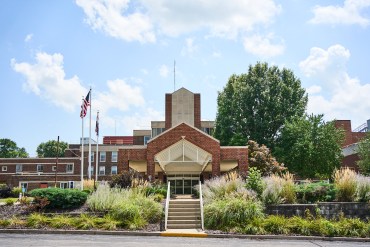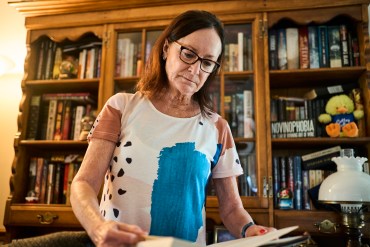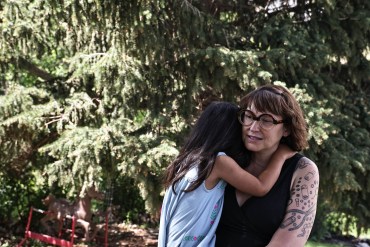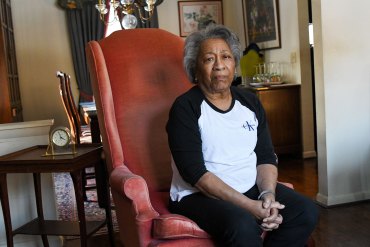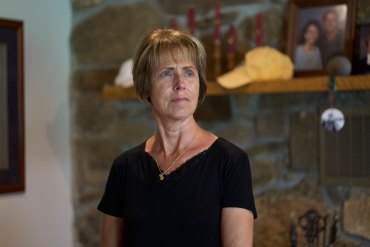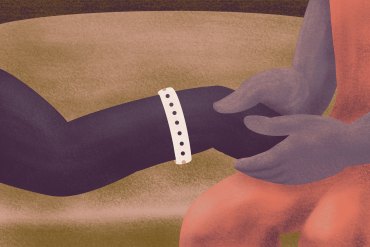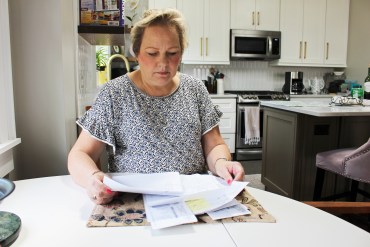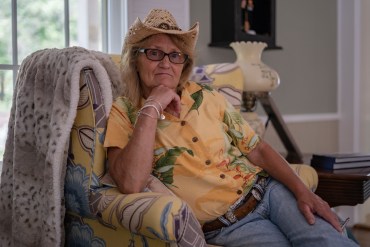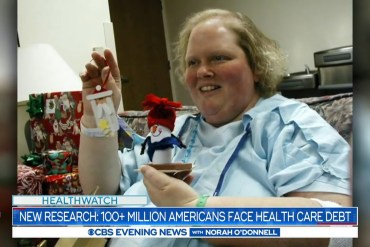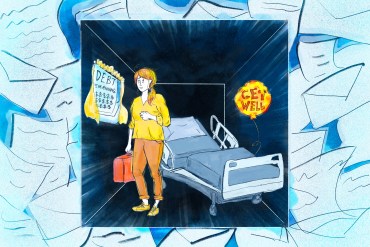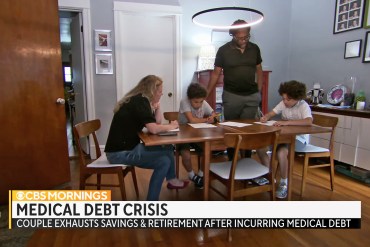Buy and Bust: After Platinum Health Took Control of Noble Sites, All Hospital Workers Were Fired
Two Missouri towns are without operating hospitals after private equity-backed Noble Health left both facilities mired in debt, lawsuits, and federal investigations. The hospitals’ new operator, Platinum Health, agreed to buy them in April for $2 and laid off the last employees in early September.
Private Equity Sees the Billions in Eye Care as Firms Target High-Profit Procedures
As private equity groups are swarming into aging America’s eye care, the consolidation is costing the U.S. health care system and patients more money.
The $18,000 Breast Biopsy: When Having Insurance Costs You a Bundle
An online calculator told a young woman that a procedure to rule out cancer would cost an uninsured person about $1,400. Instead, the hospital initially charged almost $18,000 and, with her high-deductible health insurance, she owed more than $5,000.
Haunted for 13 Years by Debt From Childbirth, Then Rescued by a Nonprofit
Terri Logan, 42, Spartanburg, South Carolina Approximate Medical Debt: $1,400, now $0 Medical Issue: Premature childbirth What Happened: Two months ahead of her due date with her second daughter, Terri Logan felt weighed down by stress. She was a high school math teacher in Union City, Georgia, and was ending her relationship with the baby’s […]
Sleepless Nights Over Her Children’s Future as Debts Pile Up
Jeni Rae Peters, 44, Rapid City, South Dakota Approximate Medical Debt: More than $30,000 Medical Issue: Breast cancer What Happened: Jeni Rae Peters’ budget has always been tight. But Peters, a single mom and mental health counselor, has worked to provide opportunities for her children, including two girls she adopted and a succession of foster […]
Her Brother Landed in a Nursing Home. She Was Sued Over His Bill.
Lucille Brooks, 74, Pittsford, New York Approximate Medical Debt: $8,000 Medical Issue: None. She was billed for her brother’s care. What Happened: Lucille Brooks was stunned to discover a nursing home in Monroe County, New York, was suing her. She had never been a patient there. Nor had her husband. “I thought this was crazy,” […]
After Wiping Out $6.7 Billion in Medical Debt, This Nonprofit Is Just Getting Started
Nonprofit RIP Medical Debt buys up unpaid hospital bills plaguing low-income patients and frees them from having to pay.
Buy and Bust: Collapse of Private Equity-Backed Rural Hospitals Mired Employees in Medical Bills
The U.S. Labor Department investigates Noble Health after former employees of its shuttered Missouri hospitals say the private equity-backed owner took money from their paychecks and then failed to fund their insurance coverage.
Hospices Have Become Big Business for Private Equity Firms, Raising Concerns About End-of-Life Care
Private equity firms are seeing opportunities for profit in hospice care, once the domain of nonprofit organizations. The investment companies are transforming the industry — and might be jeopardizing patient care — in the process.
Nursing Homes Are Suing the Friends and Family of Residents to Collect Debts
Debt lawsuits — long a byproduct of America’s medical debt crisis — can ensnare not only patients but also those who help sick and older people be admitted to nursing homes, a KHN-NPR investigation finds.
The Ambulance Chased One Patient Into Collections
After a car wreck, three siblings were transported to the same hospital by ambulances from three separate districts. The sibling with the most minor injuries got the biggest bill.
Listen: Why Medical Debt Touches Every Corner of America
KHN senior correspondent Noam N. Levey joined WBEZ and Wisconsin Public Radio to talk about medical debt and health care costs in the U.S.
In America, Cancer Patients Endure Debt on Top of Disease
Medical breakthroughs mean cancer is less likely to kill, but survival can come at an extraordinary cost as patients drain savings, declare bankruptcy, or lose their homes, a KHN-NPR investigation finds.
How to Get Rid of Medical Debt — Or Avoid It in the First Place
Medical bills can add stress to the already stressful experience of dealing with a medical crisis. And if you can’t pay those bills, they can linger, wreaking havoc on your financial goals and credit. Here’s how to protect yourself.
Listen: He Was Denied Care Because He Owed His Doctor Less Than $100
NPR’s “Morning Edition” and “All Things Considered” interview KHN’s Noam N. Levey about the problem of crippling medical debt in America.
His-and-Hers Cataract Surgeries, But His Bill Was 20 Times as Much
Whether a simple operation is performed under the auspices of a hospital or at an independent surgery center can make a huge difference in cost.
Watch: She Almost Died. The $250K Debt Took Their House.
CBS Evening News spotlights Jim and Cindy Powers, who faced crippling medical debt.
Medical Bills Can Shatter Lives. North Carolina May Act to ‘De-Weaponize’ That Debt.
Medical debt is most prevalent in the Southeast, where states have not expanded Medicaid and have few consumer protection laws. Now, North Carolina is considering two bills that could change that, making the state a leader in protecting patients from high medical bills.
Watch: Still Paying Off Bills From Twins’ Birth. The Kids Are 10 Now.
Marcus and Allyson Ward explain to “CBS Mornings” how the premature birth of their twins left them with $80,000 in medical debt. A new KHN-NPR investigation reveals they are among 100 million people afflicted financially by the U.S. health system.
Más de 100 millones de estadounidenses viven acosados por las deudas médicas
La investigación revela un problema mucho más extendido de lo que se había informado anteriormente. Esto se debe a que gran parte de la deuda que acumulan los pacientes figura como saldos de tarjetas de crédito, préstamos familiares o planes de pago a hospitales y otros proveedores médicos.



